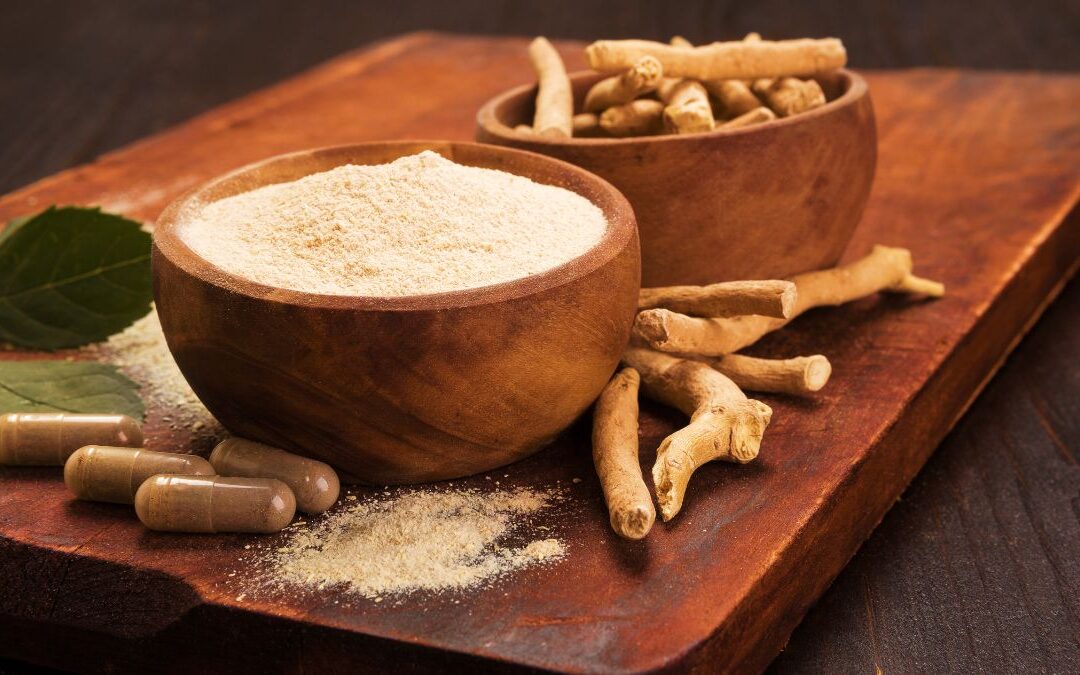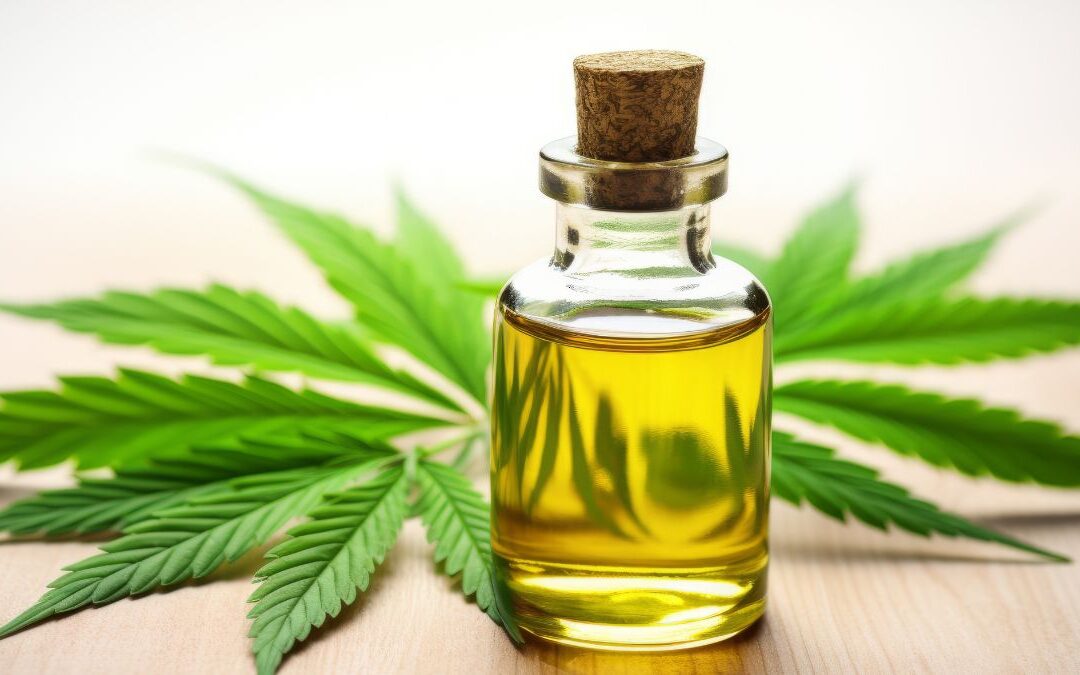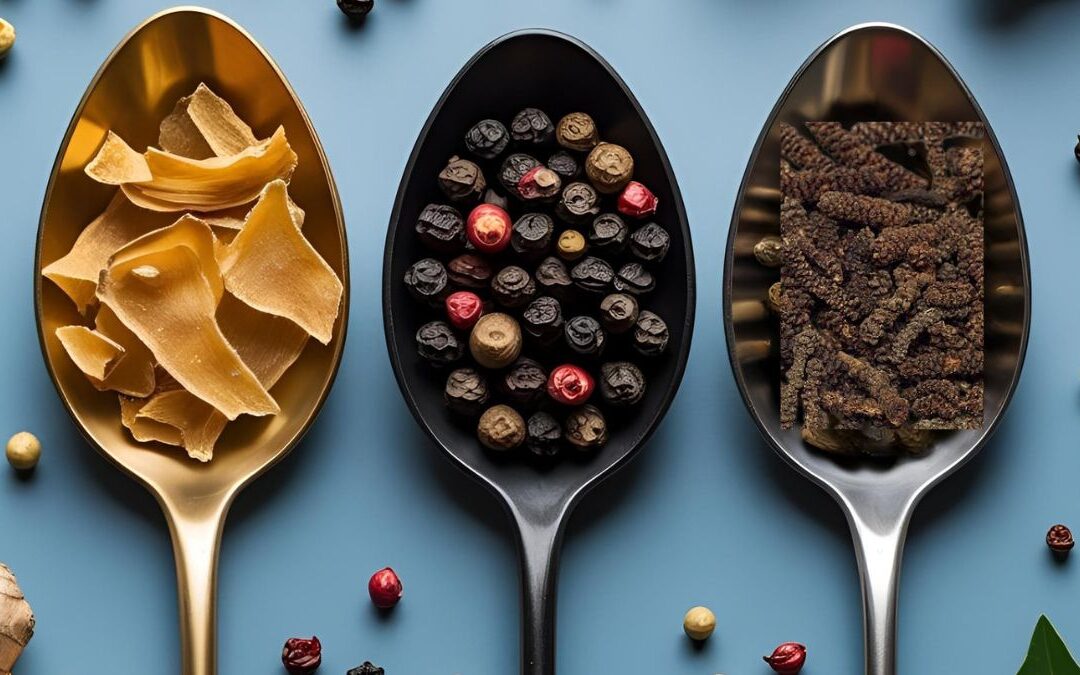
by Anjelene Immaculate | Jul 3, 2025 | Ayurveda, Wellness & Healing
What is Frozen Shoulder?
Frozen shoulder, medically termed Adhesive Capsulitis, is a painful condition in which the shoulder joint becomes stiff and inflamed, significantly restricting movement. The term “frozen” is used because the joint appears to be stuck or frozen in place, limiting both active and passive range of motion. This condition can last for months or even years and progresses gradually.
Why Does Frozen Shoulder Happen?
In modern pathology, frozen shoulder occurs when the capsule surrounding the shoulder joint thickens and tightens due to inflammation, leading to the formation of scar tissue (adhesions). This restricts the joint’s movement and causes chronic pain.
- Injury or Surgery: Immobilisation after fractures or surgeries can lead to stiffness.
- Diabetes: People with diabetes are at higher risk; the exact reason remains unclear.
- Thyroid Disorders, Parkinson’s Disease, Cardiac conditions
- Stroke or prolonged non-use of the arm
- Idiopathic: No clear underlying cause in many cases
Symptoms and Stages of Frozen Shoulder
Frozen shoulder typically develops in stages:
- Pre-Freezing / Prodromal Stage (1–3 months)
- Mild discomfort and stiffness
- Pain at night or after specific movements
- Freezing Stage (6 weeks – 9 months)
- Sharp, increasing pain
- Progressive stiffness and reduced mobility
- Frozen Stage (4 – 12 months)
- Pain diminishes
- Joint becomes significantly stiff and difficult to move
- Thawing Stage (5 months – 2 years)
- Gradual return of mobility
- Shoulder regains strength and function
Ayurvedic View: Avabahuka (Frozen Shoulder)
In Ayurveda, frozen shoulder is referred to as Avabahuka, primarily caused by Vata dosha aggravation due to:
Causative Factors (Nidana)
- Excessive cold exposure
- Irregular sleep and eating habits
- Overexertion or injury
- Poor digestion and Vata-vitiating foods
Why It Is Increasing Today?
- Prolonged Screen Time: Tech neck, poor posture, mobile usage
- Binge Watching: Continuous immobility while watching reels or shows
- Cold & Damp Weather : Aggravates Vata dosha
- Sedentary Lifestyle: Limited physical activity and bad ergonomics
- Young Population Affected: More young adults and children face early onset due to digital habits
Ayurvedic Line of Treatment (As per Samhitas)
- Snehana (Oleation)
- Swedana (Fomentation)
- Abhyanga (Medicated Massage)
- Nasya (Nasal Therapy)
- Basti (Medicated Enema) for systemic Vata correction
Ayurvedic Medicines (To be taken under supervision)
- Guggulu Formulations
- Rasnasaptakam Kashayam
- Ashwagandha, Shallaki, Eranda Sneha
- Dashamoola formulations
Dosages and medicines should be prescribed by an Ayurvedic physician as per individual constitution and condition.
Home Remedies and Self-Care
- Turmeric Water: Anti-inflammatory properties
- Garlic Milk (Lashuna Ksheerapaka): Strengthens joints
- Ginger Tea or Water: Improves blood circulation
- Ashwagandha / Clove Water: Helps reduce Vata
- Nirgundi Leaf Juice (Swarasa)
External Therapies
- Mahanarayana Thailam / Karpooradi Thailam / Prasasrinyadhi Thailam massage
- Hot Herbal Packs: Turmeric & ginger paste, or Kottamchukkadi choornam pack externally mixed with egg or water.
- Heat Therapy: After applying oil use wheat husk bags or ready-made microwaveable pads available in UK
Ayurvedic Panchakarma Centre
Most Effective management and significant results you can get if you take proper therapeutic massage from Panchakarma centre
- Abhyanga
- Patrapinda/Kizhi Sweda (leaf bolus with garlic, rice, wheat husk)
- Pizhichil and Navarakizhi therapies
Yoga and Physio Management
Physiotherapy and mild yoga are highly effective.
Physiotherapy Exercises:
Simple Yoga Poses (under guidance)
- Salabhasana (Locust Pose): Strengthens upper back and scapula
- Makarasana (Crocodile Pose): Relaxes spine and shoulders
- Gomukhasana (Cow Face Pose): Opens shoulder joints
- Virabhadrasana II (Warrior Pose): Enhances strength
- Ardha Baddha Hastasana: Improves shoulder flexibility
- Surya Namaskara: General flexibility and strength
Diet & Lifestyle
Recommended Foods (Vata-pacifying)
- Whole wheat, Urad dal, Goat milk, Cow’s ghee
- Fruits: Grapes, Pomegranate, Mango, Banana, Apple
- Healthy vegetables, warm meals
- Protein diet
- Warm water and herbal teas regularly
Lifestyle Tips
- Avoid cold food and drinks
- Take regular screen breaks
- Maintain proper posture during work and sleep
- Include stretching, mild walking
- Prioritise good sleep and stress reduction
Precautions
- Always get the condition diagnosed by a doctor
- Take medications under guidance of qualified Ayurvedic physician
- Yoga and exercise should be performed with expert supervision
Conclusion
Frozen shoulder is a debilitating yet manageable condition when diagnosed early and treated holistically. Ayurveda offers an integrated solution through internal medicines, external therapies, and lifestyle correction, complemented by yoga and physiotherapy. Addressing it early with the right approach restores strength, motion, and quality of life.
AI Ayurveda Imma – Your Guide to Ayurvedic Living in the UK | Zen Wellness
Be slow in choosing, sure in living – Choose Ayurveda.

by Anjelene Immaculate | Jun 26, 2025 | Ayurveda
Introduction: The Rise of Ashwagandha in the Modern World
Ashwagandha (Withania somnifera) is one of the most powerful and revered herbs in Ayurvedic medicine, with a history of over 3,000 years of therapeutic use. Native to the dry regions of India, it has been a cornerstone of traditional healing, now capturing the attention of the Western world as a natural adaptogen — a plant that helps the body resist stress.
Historical & Classical References
Mentioned in ancient Ayurvedic texts such as the Charaka Samhita and Sushruta Samhita, Ashwagandha has traditionally been prescribed for:
- Vataroga (neuromuscular diseases)
- Jwara (fever)
- Pachan (digestion support)
- Kushtha (skin disorders)
- Balya (strengthening)
- Rasayana (anti-aging & rejuvenation)
It was often used in powder form (churna) mixed with honey, ghee, or warm milk — still popular methods today.
Ashwagandha Pharmacological Properties (as per Ayurveda)
- Rasa (Taste): Katu (Pungent), Tikta (Bitter), Kashaya (Astringent)
- Guna (Qualities): Laghu (Light), Snigdha (Unctuous)
- Virya (Potency): Ushna (Hot)
- Vipaka (Post-digestive effect): Katu (Pungent)
- Karma (Actions):
- Kapha-Vatahara (Pacifies Kapha & Vata)
- Rasayana (Rejuvenative)
- Balya (Strength promoter)
- Sukrakara (Improves fertility)
- Anti-inflammatory
- Hepatoprotective
- Antibacterial, Sedative, Hypnotic, Diuretic, Antitumor, Aphrodisiac
- Srotogamitva (System Affinity):
- Supports nervous, reproductive, muscular, and immune systems
- Dosha: Primarily Vata Hara
- Dhatu (Tissue Affinity): Meda (Fat), Shukra (Reproductive tissue)
- Mala (Excretory System): Mutrala (Supports urination)
- Part Used: Root (primarily), also leaves
Health Benefits of Ashwagandha
Ashwagandha is a true Rasayana (rejuvenator), providing broad-spectrum support for physical and mental wellness. It is used traditionally and clinically for:
- Stress relief
- Anxiety and depression
- Improved sleep
- Neurodevelopmental support
- Cognitive performance
- Fertility & libido
- Hormonal balance
- Immunity booster
- Cardiovascular health
- Anti-aging & Rasayana effect
- Physical endurance
Ashwagandha in the Western World
Once a lesser-known herb outside India, Ashwagandha is now featured widely in:
- Supplements for stress, sleep, and focus
- Energy boosters and hormone support formulas
- Fitness and recovery blends
- Adaptogen complexes popular in UK, USA and Europe
Clinical trials and scientific studies have added credibility, positioning it as a safe, natural solution for mental and physical wellbeing.
Recent Research Success of Ashwagandha in Following Conditions
- Proven effective in improving cognitive performance in individuals with early memory decline.
- Supports thyroid hormone balance in people with subclinical hypothyroidism.
- Shown to help regulate blood sugar levels in type 2 diabetes.
- Demonstrated benefit in managing hormonal imbalance and insulin resistance in PCOS.
- Enhances physical endurance, muscle strength, and athletic recovery.
- Provides symptomatic relief in obsessive-compulsive disorder (OCD).
- Reduces symptoms of alcohol withdrawal, including anxiety and poor sleep.
- Alleviates menopausal discomfort such as hot flashes, fatigue, and mood swings.
- Found to help improve focus and reduce hyperactivity in ADHD.
- Used as a supportive remedy in neurodevelopmental conditions like autism spectrum disorder.
Precautions & Guidance
Though generally considered safe, consult an Ayurvedic practitioner before long-term use and dosage especially if:
- You’re pregnant or breastfeeding
- You have autoimmune or thyroid conditions
- You’re on chronic medications
A must have Ayurveda supplement for Indians in UK
Many Indians living in the UK experience stress, anxiety, sleep disturbances, and fatigue due to busy lifestyles. Ashwagandha is a natural solution, boosting mental calm, physical strength, and immunity.
“I’ve personally recommended Ashwagandha to several friends in UK. From panic attacks to low energy, many are already experiencing real benefits. It’s gentle, holistic, and works with your body’s natural rhythms.”
Whether you’re dealing with modern stress, sleepless nights, or low immunity, Ashwagandha is a safe, time-tested supplement. It blends ancient Ayurvedic wisdom with modern wellness needs.
AI Ayurveda Imma – Your Guide to Ayurvedic Living in the UK | Zen Wellness
Be slow in choosing, sure in living – Choose Ayurveda.
With Wellness
Imma Antonisamy

by Anjelene Immaculate | Jun 19, 2025 | Ayurveda, Wellness & Healing
Why Prepare Karpooradhi Thailam at Home in UK? Natural Pain Relief Oil for Everyday Use
In the UK’s cold, damp climate, many experience body aches, joint stiffness, or seasonal colds—especially students, the elderly, office goers, or young children. Instead of waiting weeks and spending more to order Ayurvedic oils online, you can easily make this powerful, multi-purpose pain-relief oil right at home.
Inspired by Classical Texts — Made Easy for the UK Kitchen
While Ayurvedic classics recommend the 1:4:16 proportion method (Kalka:Taila:Drava), this simplified version keeps the essence and therapeutic power intact, making it easy to prepare at home with ingredients available in our kitchen.
Ingredients (for 500 ml oil)
- Virgin Coconut Oil – 500 ml (available at Goldenacre Minimarket / Holland & Barrett)
- Camphor – 50g (from Spice Supermarket or Indian grocery store)
- Ajwain (Carom) Seeds – 50g
- Optional to grind with Ajawin:
- A small piece of cinnamon
- 2 bay leaves
- A pinch of turmeric powder
Preparation Method
Grind the Herbs (Kalka):
- In a blender, crush ajwain seeds.
- Add bay leaves, a piece of cinnamon, and a pinch of turmeric(Optional).
- Grind them together with a few drops of water into a coarse paste.
Heat the Oil:
- In a thick-bottomed pan, add 500 ml virgin coconut oil.
- Keep the heat very low
Add the Herb Paste
- Slowly stir in the ground paste (Kalka) into the oil.
- Continue to stir on low flame
Cook the Mixture:
- Simmer the mixture on medium-low heat
- Stir continuously to prevent burning
- Cook until water fully evaporates
- Signs of completion:
- Mixture stops bubbling
- Sound disappears
- Paste becomes dry and rolls into a wick
- Oil clears and floats on top
- Do not add camphor at this stage.
Cool and Add Camphor:
Once the oil is lukewarm strain in another vessel which has 50g camphor and stir until dissolved.
Camphor evaporates at high temperatures—never heat it directly in oil.
Ingredients Source in UK:
Quick Method (Instant Version with Vicks or Menthol Ointments)
For a faster homemade remedy, follow these steps:
- Heat Virgin Coconut Oil (small portion) on low flame.
- Add a spoon of Vicks, Iodex, or any menthol-based balm containing camphor.
- Stir gently until it dissolves (do not overheat – camphor evaporates fast).
- Let it cool and store in a clean jar.
This is a quick-use version when you don’t have camphor crystals but need instant relief.
Storage Tips
- Use sterilized glass containers
- Store in a cool, dry place, away from sunlight
- Shelf life: up to 1 year
Benefits of Homemade Karpooradhi Thailam
Pain Relief & Anti-Inflammatory Action
- Relieves muscular and joint pain: Effective in back pain, sprains, knee stiffness, and neck pain.
- Helps reduce inflammation and swelling post-injury or fatigue.
- Excellent for sports injuries, arthritis, and general soreness.
Stress, Sleep & Mental Relaxation
- Daily foot massage at night with Karpooradhi oil helps:
- Calm the nervous system
- Relieve stress, anxiety
- Promote deep sleep
- Improve eyesight and detoxify
Pediatric & Elderly Use
- Safe for external use in children and elderly:
- Apply on chest, back, neck during cough, cold, nasal congestion
- Effective in vapor steaming or when gently warmed and massaged
Cough, Cold, and Chest Congestion
- Works as a natural decongestant for both children and adults
- Massage over chest, neck, and back to reduce phlegm, cold-induced discomfort
- Can be used before bedtime for better breathing and comfort
Menstrual Cramps & Abdominal Pain
- Warm the oil slightly and massage over lower abdomen for relief from:
- Menstrual cramps
- Abdominal bloating
- Lower back discomfort
Injury, Sprains, Bruises (Non-Open Wounds Only)
- Apply generously over bruises, sprained ankles, or muscle strains
- Especially useful for children, sports injuries, or school accidents
- Aids in quicker recovery by reducing inflammation and increasing circulation
Cold Weather Essential (Especially in the UK)
- Regular body massage improves blood circulation and immunity
- Ideal for winter stiffness, joint issues, and dry skin
- Acts as a natural warming oil in cold climates
Multipurpose Everyday Use
- Add to your nighttime footcare, morning chest rub, or post-exercise massage
- Combine with menthol-based ointments (Vicks, Moov, Amrutanjan) for instant relief
- Use for steaming (external only) for nasal congestion
- A cost-saving, effective, and natural alternative to chemical-based pain balms
🚫 External Use Only – Do not apply on open wounds
Why Choose Homemade Pain Relief oil Over Store-Bought?
- Save Money – Use kitchen ingredients
- No Waiting – Instant access at home
- Natural, Customizable & Safe for All Ages
- DIY Health Solution for Cold UK Climate
Karpooradhi Thailam is a time-tested Ayurvedic oil offering natural relief for pain, cold, and stress-related discomforts. Easily prepared at home with UK-available ingredients, it’s a must-have, multipurpose remedy for every household.
AI Ayurveda Imma – Your Guide to Ayurvedic Living in the UK | Zen Wellness
Be slow in choosing, sure in living – Choose Ayurveda.
With Wellness
Imma Antonisamy

by Anjelene Immaculate | Jun 12, 2025 | Ayurveda, Wellness & Healing
Understanding Obesity – The Ayurvedic Perspective
- Sthoulya = Abnormal accumulation of Meda Dhatu (fat tissue) & excessive Kapha dosha
- Described in Charaka Samhita & Sushruta Samhita as a Santarpanottha Vyadhi (disease due to over-nourishment)
- Obesity is preventable & reversible with Ayurveda and discipline, an insight about Weight loss in UK Ayurvedic Way
Pathology in Ayurveda
- Weak Jatharagni (digestive fire) → Improper digestion
- Formation of Ama (toxins) → Blocks Srotas (channels)
- Excess Kapha + impaired Vata → Accumulation of Meda (fat)
- Progressive buildup of fat leading to obesity.
Causes of Obesity in Ayurveda
- Overeating, frequent snacking (especially sweets, fried food)
- Excessive sleep, especially daytime sleep (Divaswapna)
- Sedentary lifestyle, minimal movement
- Genetic/Constitutional Kapha dominance
- Mental stress → emotional eating
- Low metabolism, high-carb diet
Additional Causes in UK
- High intake of fizzy drinks, chocolates, processed foods
- Less physical activity due to weather, indoor jobs
- Indian expats tend to stick to heavy carbs, sweets
- Easy availability of high-calorie snacks
- Irregular eating habits & late dinners
- Increased screen time & mental stress
Signs & Symptoms
- Abdominal fat, large hips & thighs
- Heaviness in the body, breathlessness on minimal exertion
- Sluggishness, slow movement
- Hormonal imbalance (PCOS, infertility)
- Hypercholesterolemia, fatty liver, insulin resistance
- Cardiovascular diseases, also affects kidney, gallbladder
- Metabolic syndrome
- Asthma
- Back pain
- Chronic illness
Ayurvedic Line of Treatment for Sthoulya (Weightloss)
Classical Herbal Formulations (with doctor supervision)
- Triphala Churna – detoxifies and improves bowel movement
- Trikatu Churna – enhances metabolism
- Guggulu-based preparations – Medohara (fat-reducing)
- Vrikshamla (Garcinia), Loha Bhasma – fat regulation
- Takra (Buttermilk) – ideal daily gut drink
Ayurvedic Therapies for weight loss
Langhana (lightening therapy) – Includes fasting, herbal decoctions
Panchakarma Detox:
Studies show Panchakarma enhances metabolism, lowers lipid levels, and corrects gut health in obesity. When visiting India try Panchakarma from Ayurveda Centers very effective method for weight loss.
- Udvartana (dry powder massage) – UK supermarkets Bath salts with turmeric powder, gram flour or Oats.
- Swedana (steam therapy) – UK Jacuzzi or sauna bath as substitute
- Virechana (purgation) – mild home-based detoxification using Castor oil, Triphala, Isabgol (under guidance)
Research Insights & Clinical Evidence
- Udvartana has shown significant fat reduction
- Panchakarma therapies effective in improving lipid profiles, reducing body fat
- Detox + diet combination improves metabolic rate, curbs cravings
UK-Friendly Ayurvedic Weight Loss Tips
- Start mornings with hot water + lemon + honey to stimulate metabolism
- Fruit fasting or water fasting once a week (after gut correction)
- Practice early dinner (by 7 PM) – avoid night meals
- Avoid snacking on crisps/sweets – opt for nuts, seeds, soaked almonds
- Choose UK-local fruits and vegetables apples, carrots, kale, berries, cucumber
- Replace white rice with millets/quinoa/brown rice
- Reduce wheat, refined flour for chappathi or Dosa– switch to oats, multi-grain flours
- Use kitchen detox drinks:
- Black Jeera (cumin), Ajwain (carom), Methi (fenugreek) boiled water
- Ginger-coriander-fennel Chia seeds herbal tea
- Lemon Tea with Mint and Corriander infused
- Masala spices chai
Lifestyle Corrections
- Daily physical activity: brisk walk at least 20 minutes , Cycling, yoga, Surya Namaskar
- Practice deep breathing, meditation to reduce emotional eating
- Establish routine meal times and sleep cycles
- Increase digestive fire (Agni) using warming spices
Consultation & Caution
- Always consult an Ayurvedic physician for personalised treatment
- Avoid sudden crash diets – correct digestion and appetite first
- Gradual fat reduction is more sustainable and healthier
- Ayurvedic therapy should complement lifestyle changes
- Panchakarma is best when done under expert guidance (India or qualified UK clinic)
Weight loss in UK Ayurvedic Way is sustainable when done by aligning mind, body, diet, and routine. Ayurveda doesn’t focus on rapid results but root cause correction, detox, and balancing lifestyle.
AI Ayurveda Imma – Your Guide to Ayurvedic Living in the UK | Zen Wellness
Be slow in choosing, sure in living – Choose Ayurveda.

by Anjelene Immaculate | Jun 5, 2025 | Ayurveda, Wellness & Healing
AI Ayurveda Imma – Your Guide to Ayurvedic Living in the UK | Zen Wellness
Living in UK means adapting to a colder, wetter climate that often leads to sluggish digestion, frequent colds, coughs, sinus issues, and low immunity—especially for those from warmer regions like India. Ayurveda offers a simple yet powerful herbal solution to these challenges: Trikatu a time-tested blend of three common kitchen spices.
What is Trikatu?
Trikatu is combination of three spices,
1.Ginger (Zingiber officinale)
2.Black Pepper (Piper nigrum)
3.Long Pepper (Piper longum).
This simple trio supports digestion, clears respiratory congestion, and strengthens metabolism.
Properties of Trikatu
- Deepana – Boosts appetite
- Pachana – Improves digestion
- Ushna – Generates internal warmth
- Kapha-Vata Shamak – Reduces excess mucus and stiffness
- Lekhana – Scrapes fat and toxins from channels
Benefits of Trikatu
This spice blend works beyond digestion—its effects are therapeutic in daily life:
- Helps relieve fever, common cold, and cough – Acts quickly on respiratory congestion
- Useful in sinusitis – Clears nasal blockages and inflammation
- Improves liver health – Ideal for those with fatty liver or alcohol use
- Reduces bloating, indigestion, and gas
- Promotes weight management and burns ama (toxins)
- Assists in cardiovascular health by improving fat metabolism
- Relieves constipation – Especially when taken with warm milk at bedtime
- Detoxifies skin – Helpful in Kapha-based skin issues
- Prevents intestinal worms, especially in children with sugary diets
Scientific Research About Trikatu
Studies support Trikatu’s effectiveness in:
Why Trikatu Must-Have for Those Living in UK
The UK’s cold and damp weather increases Kapha and Vata, often leading to sluggish digestion, colds, and respiratory problems. Trikatu naturally combats these imbalances by:
- Warming the system
- Improving agni (digestive fire)
- Supporting immunity and respiratory strength
- Ayurvedic drug Helps in weight loss in UK
- Being easily available—most ingredients are already in your kitchen!
- Adds therapeutic value to masala chai – Just 1/4 tsp enhances both taste and benefit
- When You Have Cold, Cough or Fever
Instead of relying solely on paracetamol, try this:
Mix 1/4 tsp of Trikatu in warm water or honey
Take 1–2 times a day to relieve blocked sinuses, sore throat, and phlegm
Helps sweat out toxins and balance aggravated Kapha-Vata
Always consult a qualified Ayurvedic physician for personalized dosage if you have sensitive stomach or acidity.
Even if Triphala gets the spotlight, Trikatu is the unsung hero—ideal for day-to-day wellness in colder climate like UK.
New to Ayurveda in UK?
✅ Follow this page for more Ayurvedic tips in UK
✅ Learn how to use simple herbs like Trikatu in daily life
✅ Keep your wellness aligned naturally—even in cold, wet climates
✅ Practical Ayurveda using ingredients already in your kitchen
Be slow in choosing, sure in living – Choose Ayurveda.
With Wellness
Imma Antonisamy




